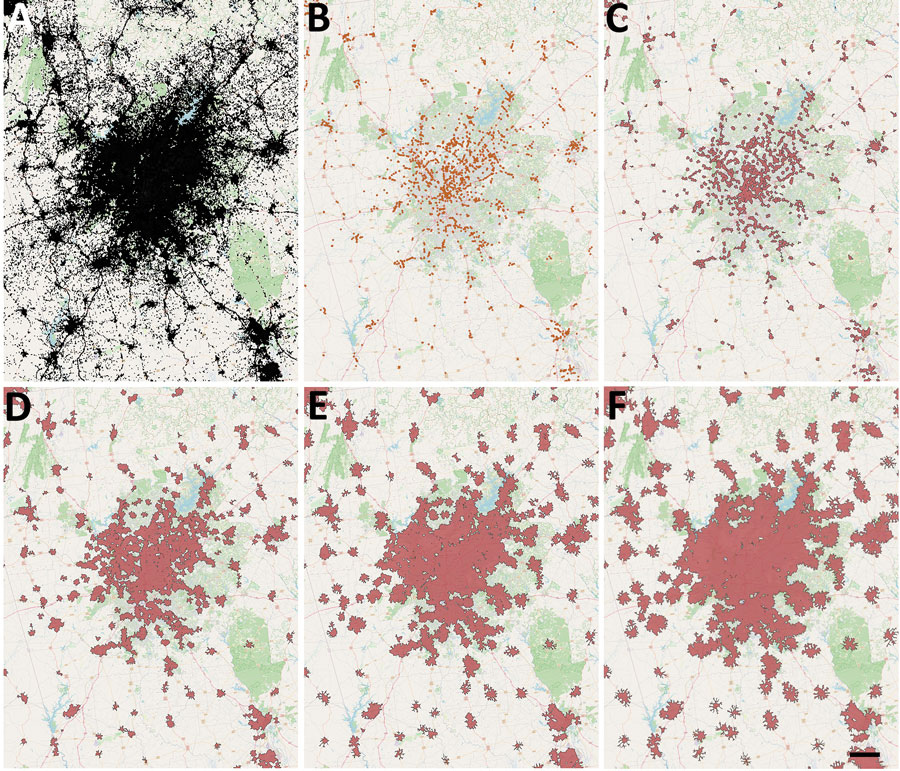Volume 30, Number 5—May 2024
Research
COVID-19 Vaccination Site Accessibility, United States, December 11, 2020–March 29, 2022
Figure 1

Figure 1. COVID-19 vaccination site accessibility, Atlanta metropolitan area, Georgia, USA, December 11, 2020–March 29, 2022. A) Adult population density; B) COVID-19 providers; C) COVID-19 vaccination site accessible by 15-minute walk; D) 30-minute walk; E) 45-minute walk; F) 60-minute walk. Scale bar indicates 20 km.
1These first authors contributed equally to this article.
Page created: March 28, 2024
Page updated: April 23, 2024
Page reviewed: April 23, 2024
The conclusions, findings, and opinions expressed by authors contributing to this journal do not necessarily reflect the official position of the U.S. Department of Health and Human Services, the Public Health Service, the Centers for Disease Control and Prevention, or the authors' affiliated institutions. Use of trade names is for identification only and does not imply endorsement by any of the groups named above.